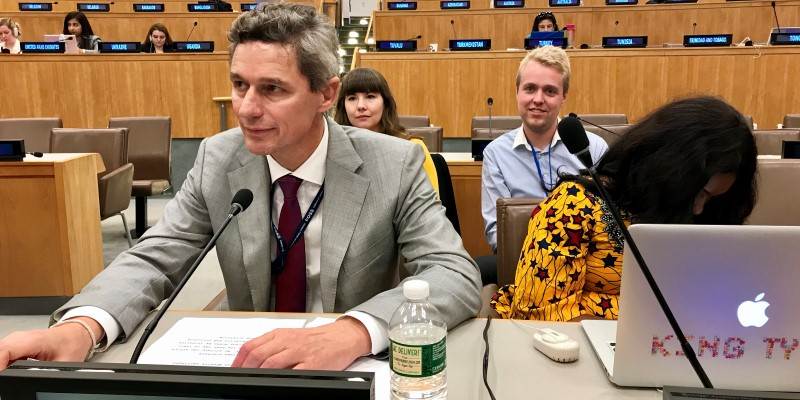Chair, colleagues,
It is time to deliver on the goal we have set for 2030 to achieve gender equality and empower all girls and women.
The most difficult job remains: To reach the most marginalized women – those who have not been part of the progress that has taken place in health and education over the past 15 years, because they are poor, live in rural areas, belong to ethnic minorities or have disabilities.
Women and girls in rural areas suffer disproportionately from poverty. While extreme poverty has declined globally, the 815 million people in the world who live in unacceptable conditions of poverty are heavily concentrated in rural areas.
In general, rural women are worse off than rural men and urban women when it comes to poverty, exclusion and the effects of climate change.
Chair,
To realize women’s rights and allow our societies to prosper we must make use of all resources.
Gender equality has played a key role in Norway’s journey from poverty to prosperity. Today, Norwegian women work in paid jobs almost as much as men. Paid parental leave and affordable childcare are necessary to get women into the workforce.
As a simple illustration; if there had been no employment growth among Norwegian women from 1972-2013 the cumulative mainland GDP would have been NOK 3,300 billion lower than the level actually attained. Actually, women’s work contributes more to our prosperity that the oil in the North Sea. Our experience has international relevance. Equality is our most valuable investment. It will be equally profitable for other countries. It is a fact that the world's most gender equal countries are also the countries with the highest levels of development.
Chair, Investing in education, particularly for girls, is the most effective way of promoting sustainable development.
That is why Norway works hard to promote education globally, and why we have doubled our aid to global education over the past four years (from 1.7 billion NOK in 2013 to 3.4 billion NOK in 2017). If we want to see women and girl’s full participation, we must be ready to face some challenges up front.
The lack of information and knowledge about sexual and reproductive health and rights is particularly acute for rural women, especially young women.
We know what the consequences of child marriage are. It can contribute to poverty, lead to violence and sexual abuse, dropout from school, social isolation and depression. It is a threat to girls' health and lives.
Girls who are taken out of school to get married have small chances to become financially independent. They have little knowledge of their own rights and often have no other choice than to remain in violent and abusive marriages.
Child marriage prevents development. No society can afford not to make the best use of their girls and young women by investing in their education and including them in the workforce.
Violence against women has enormous costs – for the individual victims and for society at large. We must end all forms of violence against women and girls. That includes intimate partner violence, marital rape, trafficking in women, female genital mutilation and child, early and forced marriage.
We will never accept that religion and so-called traditional values are used as an excuse to deprive women and girls of their rights.
Thank you.
